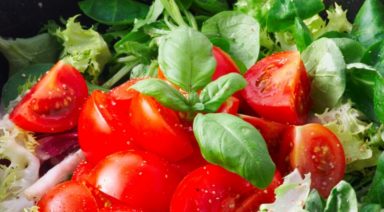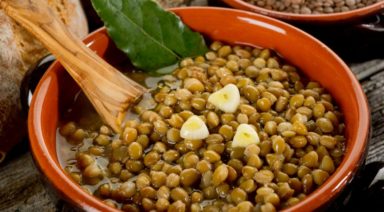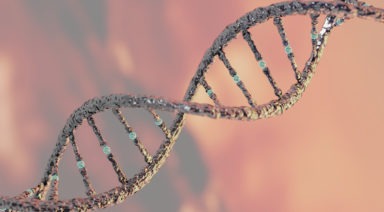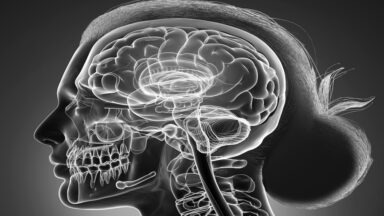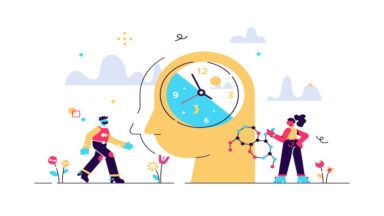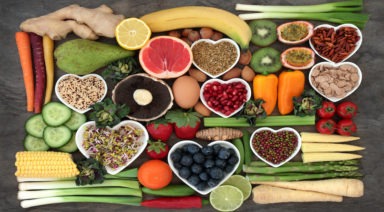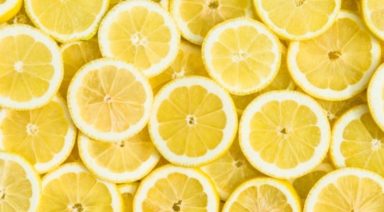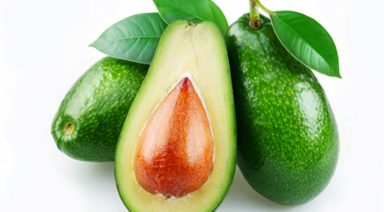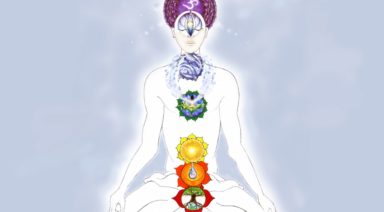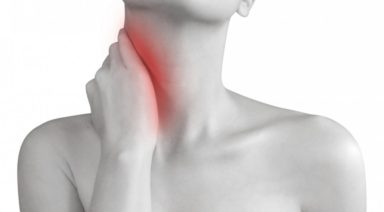The Keto Diet: Overview, Benefits, and Warnings

Over the past few years, the keto diet, or ketogenic diet, has become one of the most popular forms of dieting and weight loss. While weight loss isn’t in the cards for every dieter, it’s often the primary motivator.
Because the diet requires a drastic reduction in carbohydrates, we might feel spacey, flaky, and lost for a few days, but only at the start. By its conclusion, many dieters report a loss of weight and see an overall improvement in their mental clarity and physical health.
Getting on the keto diet might not make you a better person, but it will improve your relationship with bacon grease and cauliflower. It might also teach you about the addictive nature of carbs.
What Happens to Our Bodies During the Keto Diet?
As we starve our bodies of carbohydrates, our systems begin to get our energy from triglycerides in our stored fat. As our livers break down the fat and produce ketones (acids), our bodies enter the survival state known as ketosis. This is when our energy levels improve, and our weight tends to decrease.
Let’s be careful though. When the body is synthesizing fat, it can also produce excess ketones, which can be poisonous to the body, resulting in ketoacidosis. Good times.
My body goes crazy for foods that are high in carbs. I especially love pasta, which means giving it up is painful. When we eat carbs, our bodies rush to produce glucose and insulin. After a plate or two of spaghetti, I tend to feel a little high. Lucky me!
With carbs, glucose converts to bursts of energy, and then insulin processes it all in the blood and carries it throughout the body. For a while, carbs can feel wonderful.
When I completed my keto diet at 31 days, I had lost 15 pounds. During and after the diet, I experienced improvements in mental focus, memory, and energy.
Many people report losing lots of weight during their keto diet, while some don’t lose any weight at all. Luckily, weight isn’t the banner value of the diet.
What is the Keto Diet?
The keto diet consists of a straightforward set of rules:
- Remove carbs from your diet or drastically reduce your carb intake. This means no grains, rice, pasta, potatoes and their tubular friends, and no bread, flour, fruit, or sugar.
- You can eat meat, eggs, vegetables, high-fat cream, butter, nuts, seeds, avocados, berries, stevia sweetener, and all the other fats (high-fat salad dressing, coconut oil, sesame oil, saturated fats, and bacon fat). Yes, bacon fat. Lots and lots of bacon fat.
- Eat as much as you want from 11 am to 7 pm.
- Do not eat from 7 pm to 11 am every day.
- When planning your meals, include lots of fatty meats and oily proteins.
- During each sitting, eat your vegetables first and then your proteins.
The nutritional breakdown of your meal plan might look something like this:
- Fat: 70% of calories
- Protein: 25% of calories
- Carbs: 5% of calories
By forcing a fat-burn through the liver, your body goes into a state similar to fasting, known as ketosis. In some cases, this fast-paced fat-burn can be reinvigorating.
In many cases, the weight you’ve been struggling to lose for the past five years will appear to fall off magically. Please be aware that this is not the case for everyone.
Some people find the beginning of this diet to be very difficult. The spaciness and confusion that can result from excluding carbs from their diet can feel debilitating. If you struggle with letting go of carbs, pace yourself, and try to decrease your carb intake over time.
The Downside of the Keto Diet
When you stop eating carbs, your body and mind begin to exhibit a type of withdrawal. While your system is scrambling to grab energy from fat, your mind and body look for their sugar daddy – carbs.
While your body is transitioning to its new source of power, it might also produce flu-like symptoms, otherwise known as the Keto Flu, Carb Flu, or Sugar Flu. The resulting fatigue will cause you to feel like you’re running around steep mountain paths at very high altitudes. You might also feel sleepy and tend to whine like a 5-year old. It’s okay; mommy loves you.
In the midst of your Keto Flu, your mind might wander, mostly because your brain will miss the energy bursts that the carbs were producing. You might feel confused and won’t have quality mental agility for a few days. This is all temporary. Eventually, your mind and body catch-up to the new system of fat-burning and all sorts of beautiful things take place.
During this diet, you might experience a change in bowel function, including constipation. This can be attributed to your newly-found low fiber intake. Without carbs, you’ll need to get fiber from vegetables and psyllium seed husks.
Seriously, eat fiber-rich veggies and psyllium. This will make your trips to the bathroom much less painful and far more productive.
If you experience diarrhea during your diet, you might need to add probiotics to your meals, along with fermented foods like sauerkraut, pickles, kimchi, tempeh, and miso.
While you’re at it, be prepared for a slower metabolism and stinky breath — just sayin.
The Benefits of The Keto Diet
Most people love the ketogenic diet for the benefits outside of weight loss.
Here’s a list of the most incredible takeaways:
- Increased energy
- Improved mental focus
- Increased mental agility
- Improved memory
- Reduced cholesterol
- Lowered blood pressure
- Regulated hormones
- Controlled epileptic seizures
- Lower insulin at healthier levels
- Increased sex drive
- Reversed insulin resistance
- Reduced feelings of stress
- More frequent feelings of happiness
- Reduced acne (Yup, the keto diet means fewer zits!)
Keto Diet Warnings and Conclusion
If you’re on the keto diet and you experience frequent urination, extreme thirst, high blood sugar levels, and high levels of keynotes in the urine, please see a doctor or go to an emergency room. These are symptoms of DKA, otherwise known as Diabetic Ketoacidosis.
Most common in type 1 diabetes, DKA is a serious condition, and it can make you violently ill. It might also kill you. Treatment involving fluid replacement has the highest rate of success.
To flush ketones out of your body naturally, drink extra water.
Keep in mind that the keto diet was never meant to be a long-term strategy for health and weight loss. Some doctors are not careful when prescribing this diet. Your keto friends might also be unaware of the diet’s potential risks.
If you’re frequently using the keto diet for weight loss or any of its other benefits, you run the risk of chronic disease, and potentially, premature death. Yes, it’s that serious.
In all cases and with all diets, be extremely careful, especially when limiting your carbohydrate intake.
The most comprehensive health and diet plans include exercise. Consult a western or naturopathic doctor to learn more about your limits and health risks related to dieting.
For the vegetarians and vegans in the house, it’s entirely possible to maintain your plant-based diet and be a keto rock star. While consuming fat is a normal part of the keto process, your fat can be from coconut oil, nuts, and avocados.
While getting on the keto diet has some compelling benefits, it might also cause you to become addicted to bacon memes.
The hidden fun of this diet is in the fat. With a little research and careful moderation, butter, pork fat, and coconut oil might become your new best friends. Go fat go!
Enjoy your diet and be safe!
Baking Soda and Apple Cider Vinegar: Why You'll Never Go Back to Shampoo

Surprise, surprise. Your commercial shampoo may have ingredients that could have serious repercussions on your health.
There’s a reason that hair care professionals suggest washing your hair only once or twice a week.
Flip over your bottle of shampoo. One of the main ingredients in shampoo is Sodium Lauryl Sulfate, known as SLS. Is it on the back of the label? It’s likely there because it is a detergent, degreaser and foaming agent. It’s in more than your shampoo, however; it might be in your dishwasher detergent, toothpaste, bubble bath and other foaming home products. Also check your car wash soap, garage floor cleaners, and car engine degreasers.
SLS isn’t something you want hanging around your sensitive body. Skin irritation, hormone disruption, eye irritation, and eye deformities are all known results of SLS toxicity. If that’s not enough, it’s even possibly carcinogenic when paired with some of the other typical ingredients in shampoo.
Even if you dismiss the SLS risks as nothing to be concerned about, here’s another issue you’re your shampoo. As I said, SLS is a detergent and degreaser. This means it strips your scalp of the natural oils in it. “Good!” you might declare. “I don’t want oily hair!” Not so fast: those oils are actually healthy and there for a reason. When they get stripped, your scalp dries out along with your hair. That’s where conditioner comes in, to replenish and restore the damage. However, the natural way is nearly always better, and sadly, conditioner does not stay on your hair in the same way that your natural oil would.
Thus begins a vicious cycle. Once your scalp contains less oil, it senses the need for more oils to be produced. That’s why you may notice an oily scalp after just a few days of not washing it. Your scalp is going into overdrive, overcompensating for these necessary oils.
A breakdown of what you’re probably doing right now: wash your hair, strip the oils, put fake oils to reduce the damage, your scalp gets super oily the next day as a result, so you wash it again.
What can we do to break the cycle?
You can definitely switch over to SLS-free, toxin-free shampoo, but you might notice this is a little pricey. Thankfully, there’s a cheaper solution! Grab baking soda and apple cider vinegar on your way home, as well as the little travel-size squeeze bottles found in the dollar section.
Baking Soda “Shampooing”
Baking soda is a gentle alkaline compound effective for cleansing and removing build up from your hair. The typical formula is 1 tablespoon of baking soda for every cup of water, though you might want to play with it according your hair density and texture. Fine, thin or short hair may require less.
A good method is to use an 8 oz travel size squeeze bottle. Fill it up with the water and baking soda mixed together. Shake it up to dissolve the baking soda.
In the shower, squeeze the water/baking soda mix onto your head, starting with the crown and then all over the scalp. Thoroughly work it through with my hands, scrubbing the scalp and rubbing the hair.
You may notice a remarkable difference in this experience: no lather or foam. This doesn’t mean it isn’t working, however! It is, in fact, cleaning your hair in a much gentler, more natural way.
Leave it on for a minute or two and then rise as normal.
Apple Cider Vinegar Rinse
We’ve raved about apple cider vinegar before. It’s an amazingly multi-functional, mild acidic that is useful for detangling and clarifying, balancing the pH level of your hair, and sealing the hair cuticle. Use 1-2 tablespoons of apple cider vinegar to every cup of water. For dry hair, use closer to 2 tablespoons. For oilier hair, use 1 tablespoon or less. Again, you may want to play with it to see what works best for you.
Put the required amount of ACV as well as a cup or a cup and a half of water into a reused apple cider vinegar bottle. Shake it up thoroughly.
In the shower, starting at the crown of the head, pour just a little on top. Then, pour again while scrunching up the hair at the base of the neck and concentrate most of solution towards the bottom and ends of your hair.
Wait a minute or two and then rinse it out.
Important Note:
Your hair will probably go through a transition phase lasting anywhere from 2 to 8 weeks in order for all of the chemicals to wash out, as well as restoration for proper scalp oil balance. In the transition period, your hair may be a little flatter, duller, or greasier as your scalp finds its balance. Sticking it out for the 2 to 8 weeks will be entirely worth it, however, as many testify that it’s their best hair they’ve ever had.
You also may have to play your solutions for some time to get the right balance for your specific hair situation. If your hair is too dry, use less baking soda or try rinsing with honey instead of vinegar. If your hair is too oily, use less vinegar, or try rinsing with lemon juice, or try not using a rinse at all.




